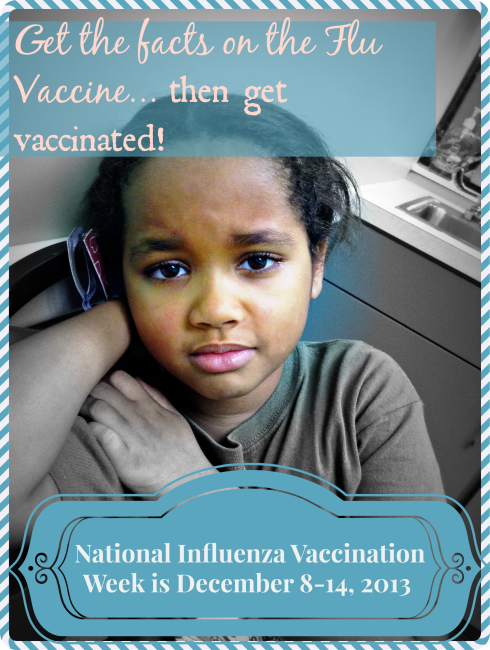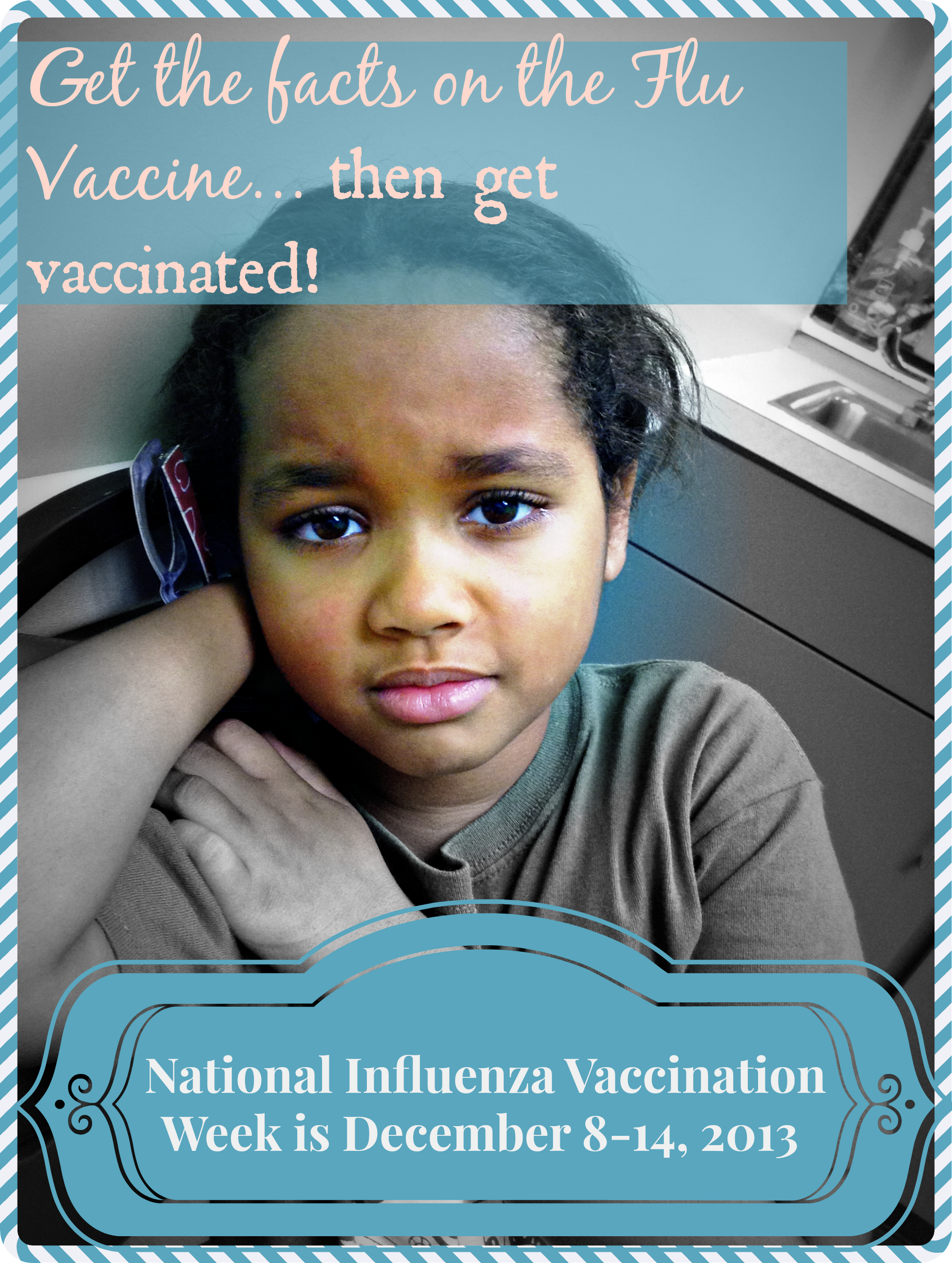The nasty flu bug hits our house every year, especially around the holidays. And each year when I walk into our pediatrician’s office with a feverish child she reminds me how important it is to get the flu vaccine. My children suffer from asthma that really only flares up when they have a cold or the flu. When it flares it up, it gets pretty nasty. With National Influenza Vaccination Week (NIVW) starting on December 8, I thought I’d share important facts on the flu I learned from an interview with Dr. Fierro, one of the Centers for Disease Control’s (CDC) health experts. Dr. Fierro helped me get a better understanding of how the virus is spread and what we can do as parents to prevent our families from getting infected with the flu. And don’t fret, this information is right on time. Most people get the flu in January or later in the United States and the season can last as late as May. Let’s get the facts on the flu vaccine then we’ll both schedule our appointments to get our families vaccinated!

Important Facts on Flu Vaccine to Protect Families
Q: Why get the flu vaccine?
A: To avoid getting the flu. As long as flu viruses are spreading and causing illness, vaccination protects the whole family against the flu. Even unvaccinated people who have already gotten sick with the flu this season should get the vaccination since the vaccine protects against three or four different flu viruses. Although there are many strains, three are usually more common each season.*
Q: At what age is it recommended to start getting vaccinated?
A: The CDC recommends a yearly flu vaccine for everyone above the age of 6 months of age and older as the first and most important step in protecting against influenza disease. Children younger than 9 years-old who are getting vaccinated for the first time will need two doses of vaccine.
Q: If I was vaccinated last year, do I need to do it again this year?
A: Yes, the flu virus changes each year. Research is done every year to find the most common strain, something that varies each year. A new vaccine is made each year so that the vaccine protects against the currently circulating influenza viruses. To get protected, you need the 2013-14 flu vaccine experts predict will spread this season.
Q: Who is at risk for developing serious flu complications?
A: People at high risk for developing serious flu complications include children younger than 2 years, people 65 years of age and older, pregnant women, and people that work in the health care industry. Persons with some long-term medical conditions such as asthma, diabetes and cancer are also at high risk. If someone is high risk, the flu can become a more serious illness and require hospitalization, or it can mean a worsening of existing chronic conditions.
Q: Can a person get vaccinated while they are sick with the flu or another illness?
A: No, a person that may have the flu or an active illness should wait to get vaccinated until they feel better. And since there are usually two to three highly contagious strains of the flu, they should still get vaccinated to protect against other strains.
Q: Statistics show that African-American and Latino/Hispanic families historically do not get the flu vaccine as often as other demographics, why do you think this is the case?
A: There are several reasons that includes lack of access to health care, misconceptions that the vaccine causes the flu, and the idea that home remedies may prevent or “cure” the flu. These three factors, among others, have created barriers to protection and results in higher rates of hospitalization.
Getting everyone in your family vaccinated will help keep your family safe. Plus, nothing like a little peace of mind knowing that you have taken the single best step to protect yourself and your loved ones against the flu.
Want more information? Check out the CDC website to access additional information and resources about the flu and the different complications that it can cause in the overall health of a family.
*This is a sponsored post and interview done in partnership with the Vaccination Disparities Partnership at the CDC. Answers are not direct quotes of Dr. Fierro but summaries. All opinions are my own.


Leave a Reply